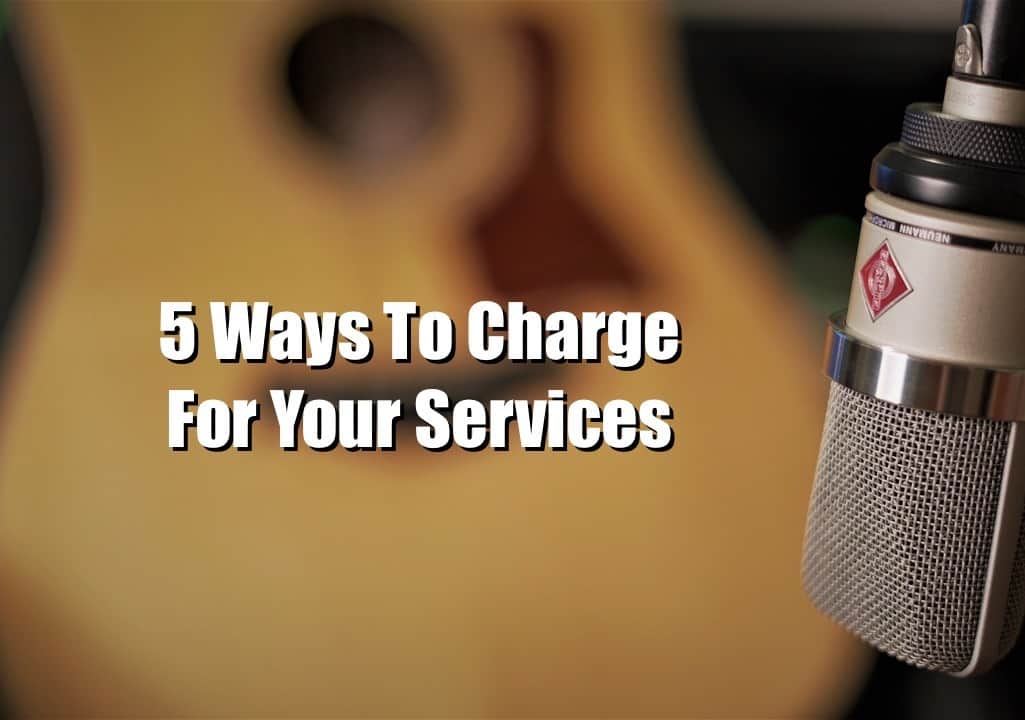When you are your own boss, getting paid can be a bit of a grey area. Learn how to charge others for your time with these five tips.
A guest post by Bobby Owsinski of Music 3.0.
If you’re a producer, engineer or musician, chances are that you’ve been asked to work on someone’s recording. That’s all well and good, but how do you get compensated for your efforts? Here are 5 ways that you can charge for your services.
Here’s a typical scenario. An indie band asks you to work with them. You may be asking yourself, “How much should I charge?” There are actually a number of approaches you can take, although none will have you retiring to the Bahamas anytime soon. You can do the following:

1. Get paid on spec
This approach is the one that most fledgling musicians, engineers and producers use when starting their careers. The deal is that if the artist or band “makes it” (meaning they get signed by a major label and get an advance), then you’ll get paid your project fee, points on the project (a percentage of the royalties), or both. The chances of that happening are always long no matter how much you believe in the act, so be prepared to spend your time working for free. Even if the act does sell the project later, these deals are usually fuzzy in the details, so you may not get paid as you previously agreed if at all. The only good thing that you can count on here is that you’ll be gaining much-needed experience.
2. Charge a flat project fee
A flat fee is the least desirable way to get paid, because projects have a tendency to go a lot longer than anticipated and can drag on and on when the person that’s paying realizes that you are charging the same amount regardless of the time spent. If the flat fee is the easiest or only way to get the gig, then that’s what you’ll have to do. Otherwise, avoid it if you can, unless, of course, you’re very well compensated.
3. Charge a per-song fee
This approach is better than the flat project fee, but not by much. The per-song rate has all the same problem areas as the flat-fee approach, with the exception that it can sometimes cause the artist to scale back the amount of record recording to save money. Under this charging scenario, you mostly likely won’t have to worry about the artist wanting to record an extra song at the last minute or suddenly wanting to complete a track originally deemed too weak after recording. With a per-song rate, if any additional songs are recorded, then you have to get paid.
4. Charge an hourly rate
As long as you know the people you’re working for are really good for the money, this arrangement is the safest way to go. When, for example, you inevitably spend that extra week on overdubs or mixing, you’ll get paid for the time you put in. The hourly rate keeps people focused and stops them from adding those extra five overdubs “just to see what they sound like,” or from trying ten more takes when you all agreed that the third take was great.
5. A combination of the above
Many times payment can consist of a little bit of money or a little bit of spec, some items at a flat rate and some at an hourly rate, or some combination. Try not to get too complicated. A simple deal works best for everyone, especially when it comes to getting paid. Just realize that there are a lot of options available.
There are a lot of good books on the subject of how to structure a deal for yourself that are more comprehensive than what was just laid out above. Even if you decide not to read them, at the very least, always get the terms of the deal in writing, as it’s easy to forget what the details after some time passes.
Remember to make sure that you know who is going to pay you, and when and how that’s going to happen. Sometimes, these things are overlooked and can cause your pocketbook to ache down the road.
We’re all pretty good at lending a hand when asked, but most of us aren’t that good at asking for money for it. At least one of the above ways will make sure that you’re compensated for your services in some fashion.
Bobby Owsinski is a producer/engineer, author and coach. He has authored 24 books on recording, music, the music business and social media.
Read more: https://bobbyowsinskiblog.com/5-ways-to-charge-for-your-services/#ixzz7JDlPVrYU
Under Creative Commons License: Attribution Non-Commercial Share Alike





